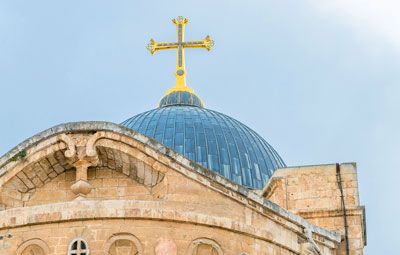The recent decision by the Israeli Police to ban Christian worshippers from participating in the sacred services of the Feast of the Transfiguration on Mount Tabor, citing the absence of requisite government approvals and licenses, has led to the regrettable closure of this holy site to thousands of faithful congregants.
This decision, reminiscent of last year’s similarly timed disruption, has left the Patriarchate of Jerusalem with little recourse. The recurrent Israeli portrayal of Christian prayers and religious ceremonies as private events necessitating security measures—an approach distinctly detached from the spiritual essence of these occasions—serves as a persistent excuse to impede Christians from exercising their faith. Such actions dismiss the integral role of Christians within the societal fabric, imposing undue restrictions rather than fulfilling the state’s duty to facilitate the practice of religious practices.
This regrettable stance is not isolated; comparable obstructions have also marred other sacred events, including Saturday of the Holy Light in Jerusalem. It is incumbent upon the Israeli authorities to uphold the inviolable rights of freedom of worship, access to holy sites, and the unimpeded performance of religious ceremonies—rights that are both inherent and guaranteed by international law to the indigenous Christian community in the holy land.
In anticipation of avoiding a repetition of last year’s events during the Feast of the Transfiguration, the Patriarchate had proactively communicated with the Israeli Minister of Interior over a month ago. However, the police’s decision has unexpectedly thwarted the natural right of believers to worship. The Patriarchate earnestly hopes that Israeli authorities will reassess their stance towards non-Jewish religious practices, affirm the fundamental rights of Christians, and resist yielding to dominating radical tendencies.
By:jerusalem-patriarchate






